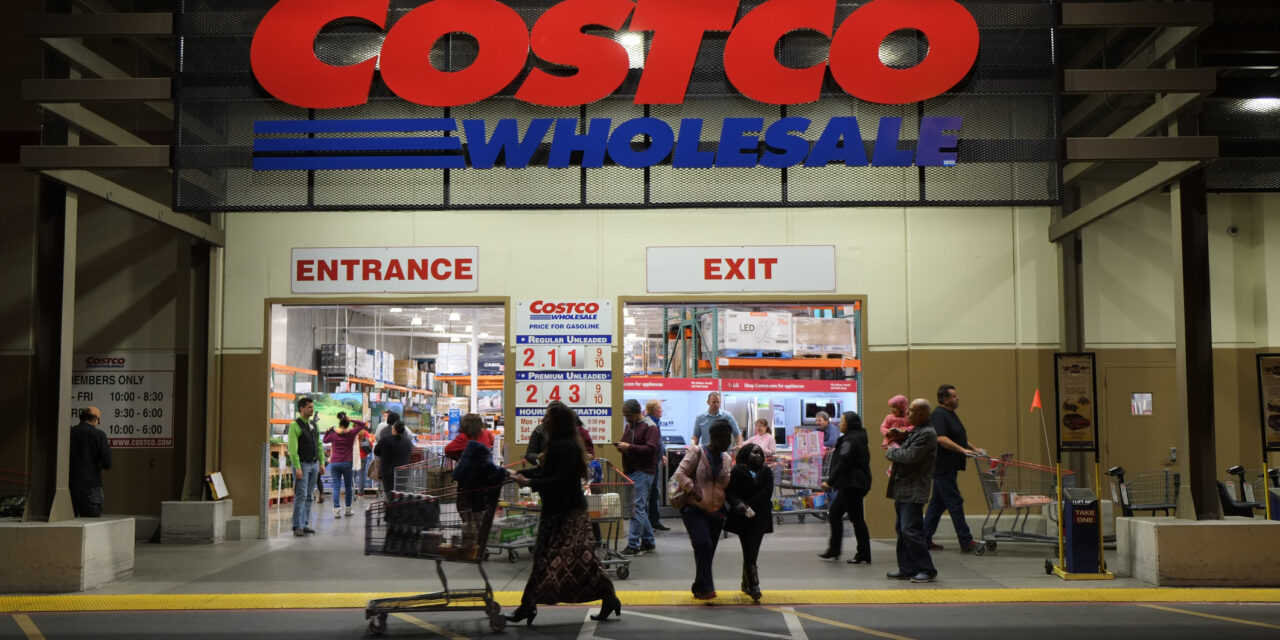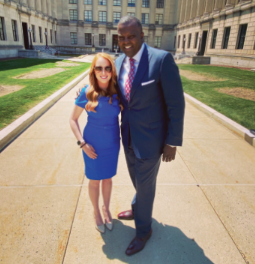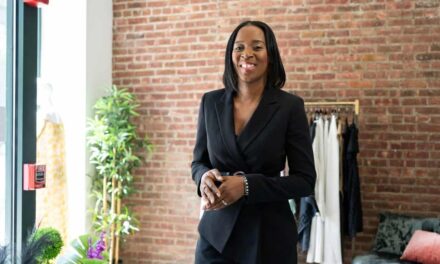
BARATA BEY IS PRESIDENT OF THE AFRICAN AMERICAN CHAMBER OF COMMERCE OF WESTERN PENNSYLVANIA. HE TOLD THE COURIER SO FAR, LOCAL COMPANIES ARE TELLING HIM THEY’RE NOT SCALING BACK THEIR DEI PROGRAMS. (PHOTO BY ROB TAYLOR JR.)
Diversity, Equity and Inclusion, more commonly known as DEI, is under attack.
President Donald J. Trump, not even a full day in office, signed an executive order to effectively end DEI-based programs and DEI-based employment opportunities on the federal level, even moving to have all federal DEI-related staff laid off and eventually terminated.
Trump also moved to end affirmative action principles in federal contracting.
DEI-focused webpages on the federal level are gone. Kapoof. And Trump ordered members of the Office of Management and Budget to look out for any federal programs that have changed their DEI-related name but still act, in principle, as an advocate for Diversity, Equity and Inclusion.
Major companies are caving into the pressure. Walmart, known for “rolling back” its prices, announced after Trump won the Nov. 5 Presidential Election that it would be “rolling back” its DEI practices, including not giving priority treatment to suppliers based on race or gender.
“We’ve been on a journey and know we aren’t perfect, but every decision comes from a place of wanting to foster a sense of belonging, to open doors to opportunities for all our associates, customers and suppliers and to be a Walmart for everyone,” Walmart said in a statement from November 2024.
What really opened some eyes in the past week was Target’s announcement that it would be scaling back its DEI programs. Traditionally, Target has positioned itself in the marketplace as an advocate for African Americans, those in the LGBTQ community and other marginalized groups.
“Many years of data, insights, listening and learning have been shaping this next chapter in our strategy,” Kiera Fernandez, chief community impact and equity officer at Target, said in a memo to employees, obtained by CNBC. “And as a retailer that serves millions of consumers every day, we understand the importance of staying in step with the evolving external landscape, now and in the future—all in service of driving Target’s growth and winning together.”
Target’s decision was more of a gut punch to America’s Black community than Walmart, Meta, John Deere, Ford or any of the other major companies that have announced its DEI rollbacks. Not only did the vicious death of George Floyd in 2020 occur in Minneapolis, the headquarters of Target, but Target has been very welcoming to Black-women-owned small business by placing their products in stores nationwide.
Target and its foundation also gave $10 million to support social justice groups, including the National Urban League and African American Leadership Forum, CNBC reported.

COSTCO SAYS THEY’RE KEEPING THEIR DEI POLICIES IN PLACE, EVEN AS SOME REPUBLICANS APPLY THE PRESSURE.
And a walk through Target shows African Americans on its posters of all shapes and sizes, and of all shades. Target, with stores in East Liberty, Robinson Township, Monroeville, Ross Township and the Homestead Waterfront, among other locations, is a hit with Black consumers.
So far, however, when it comes to companies based in Pittsburgh, the New Pittsburgh Courier has learned that some of the companies are trying to fly under the radar and keep their DEI-based principles in tact; a good thing for Pittsburgh’s African American community.
Barata Bey, president of the African American Chamber of Commerce of Western Pennsylvania, told the Courier in an exclusive interview, Jan. 27, that at least four local companies have told him directly that there are no changes planned to its Diversity, Equity and Inclusion programs.
“To my pleasant surprise, many of them are not budging on these initiatives,” Bey said.
Roughly 670 companies and small businesses are members of the local African American Chamber. That shows, at least on paper, a valued commitment from many Pittsburgh-based companies on making sure they are keeping African Americans in the fold when it comes to hiring and/or contracting. Still, now that Trump is in office, and conservative-based groups are busy applying pressure to corporations across the country to rid of DEI, Bey still has to ask the question to the Chamber’s members. He told the Courier when he’s on the phone with local businesses, if they haven’t brought up the “elephant in the room,” then he asks them directly about where they stand on DEI.
“It’s unfortunate that DEI and its initiatives, has been hijacked and made into something that is detrimental to a company,” Bey told the Courier. “What it truly means is, Diversity (making your companies more diverse because it’s good for the bottom line); Equity (equal opportunity for everyone to thrive within that company); and Inclusion (a welcoming place for all types of backgrounds, to enrich the culture and make it the best version it can be.”
Bey added: “Unfortunately, it has been attacked.”
Trump’s executive order effectively ending DEI on the federal level even caused the U.S. Air Force to temporarily stop teaching new troops about the Tuskegee Airmen, the historic Black pilots, mechanics and cooks in the segregated Army of World War II. News of that action caused an immediate backlash, and by Monday, Jan. 27, the Air Force announced it would go back to teaching about the Tuskegee Airmen.
Some major companies are sticking it to Trump. Companies like Costco and Apple (maker of the IPhone) said they’re not rolling back their DEI programs. And for that, Republican attorneys general are going after them. A letter sent to Costco on Jan. 27 demands that Costco rethink their decision to double down on its DEI programs and abandon them within the next 30 days.
Locally, Duquesne Light Holdings, which has a Black President and CEO in Kevin Walker, has been a major player in championing Diversity, Equity and Inclusion. Alyssa Battaglia, external communications associate for Duquesne Light, gave the Courier the following statement after being asked about Duquesne Light’s stance on DEI since the Trump presidency began:
“As an essential service provider, Duquesne Light Company is committed to conducting business responsibly while living our values of safety, integrity, dependability, equity and community. We believe that in order to provide excellent service, our culture must be founded on the principles of inclusion and respect, and our workforce should reflect the diverse communities we serve. We regularly assess our policies to ensure alignment with applicable laws and regulations, and we remain committed to attracting and retaining a workforce dedicated to delivering a secure energy future to our customers.”
Bey told the Courier that the companies he spoke with, which he did not name, know this DEI debate “is of interest and a concern that they’re thinking about internally. But until someone reaches out from the federal government, it’s business as usual because they don’t want to draw attention to themselves.”





